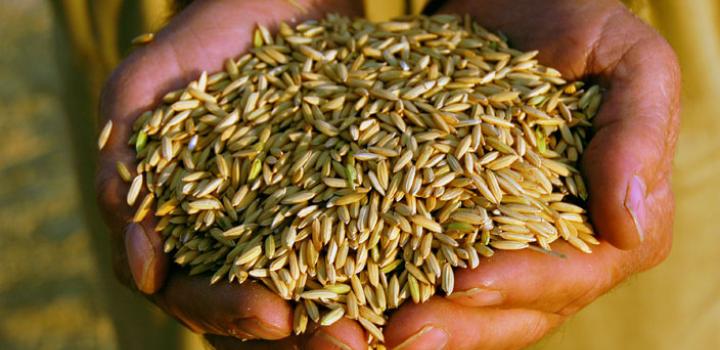China inches towards allowing U.S. rice sales
by January 8, 2019 6:10 pm 1,879 views

China customs has announced it will allow imports of U.S. rice and industry leaders are waiting for the first orders. The move is part of the Sanitary and Phytosanitary Protocol signed between the United States and China from July 2017.
USA Rice CEO and President Betsy Ward told Talk Business & Politics the ongoing trade war has hampered efforts to open the Chinese market after the agreement was reached. Industry leaders hope that the Chinese will buy several hundred thousand metric tons of U.S. rice, Ward said.
Officials have spent 10 years working on a deal to sell rice in the world’s most populous country with China consuming as much rice as Arkansas produces every 13 days, according to estimates.
“We are fairly optimistic the Chinese will allow rice imports,” she said. “This is potentially a huge market for us.”
China will now need to post the list of approved U.S. export mills and facilities of milled rice developed in consultation between the U.S. rice industry, United States Agriculture Department’s Animal and Plant Health Inspection Service (APHIS) and China’s Agricultural Inspection Service, according to the Agriculture Council of Arkansas. In 2017, USA Rice worked with U.S. and Chinese government officials to facilitate Chinese inspections at 10 U.S. mills and facilities interested in exporting rice to China to demonstrate their compliance with the complex U.S.-China phytosanitary protocol.
“What is still not 100% clear is whether China has published the complete list of all the U.S. facilities approved to ship to China,” said Bobby Hanks, Chair of USA Rice’s International Trade Policy Committee and a Louisiana miller. “We will be looking in the days ahead to USDA and the U.S. Trade Representative for clarification to make sure that all approved U.S. facilities are eligible. We of course are looking for the first confirmed rice sale to China.”
China’s rice imports have grown in recent years and are hovering near 5 million metric-tons.
China has been a member of the World Trade Organization since 2001, but the U.S. has been barred from selling rice there because it lacked the phytosanitary standards required by the Chinese government. Seminars will be held in China and the U.S. to educate consumers about the different kinds of American rice. Demand for export rice will be highest in coastal areas, restaurants, hotels, and high income consumers.
Arkansas farmers were projected to grow 1.4 million rice acres during the 2018 season, an uptick from 2017 when about 1.161 million acres were planted. It was 47.1% of all rice acres planted in the U.S., according to the B.R. Wells Arkansas Rice Research study issued by the University of Arkansas Division of Agriculture.
Those acres accounted for 82.6 million hundredweight of rice, and it represented 46.4% of the 178.2 million hundredweight produced in the country. During the last three years, Arkansas has accounted for more than 47% of the nation’s total rice production, the report found. Per acre, farmers had a yield of 164.4 bushels per acre or 7,400 pounds. It was the third highest yield on record in the state and a 570 pound per acre uptick from 2016.
Rice is grown in 40 of Arkansas’ 75 counties and is predominately grown in the eastern section of the state. The first rice crop was grown on a single acre in Lonoke County in 1902, although there are reports of the crop in the state before the Civil War, according to historians. Rice acres steadily grew from then and by 1955 the federal government initiated a set of controls capping the number of rice acres at 500,000. Controls were lifted in the 1970s, and the number of rice acres continued to grow. The state set its all-time rice acreage record in 2010 when farmers planted 1.785 million acres.
